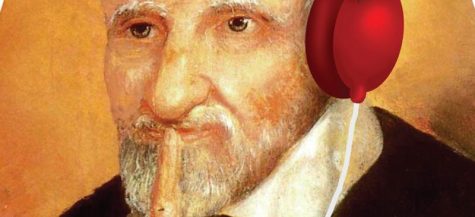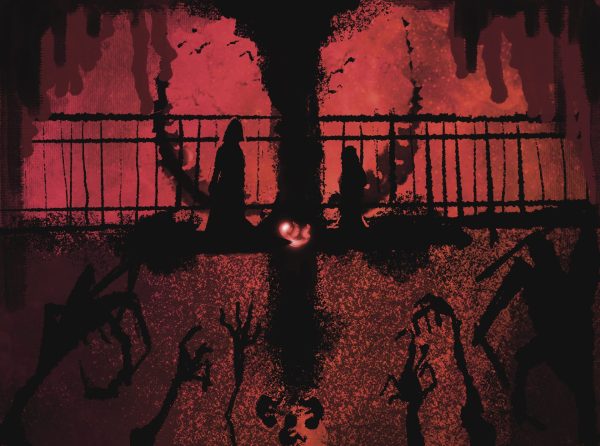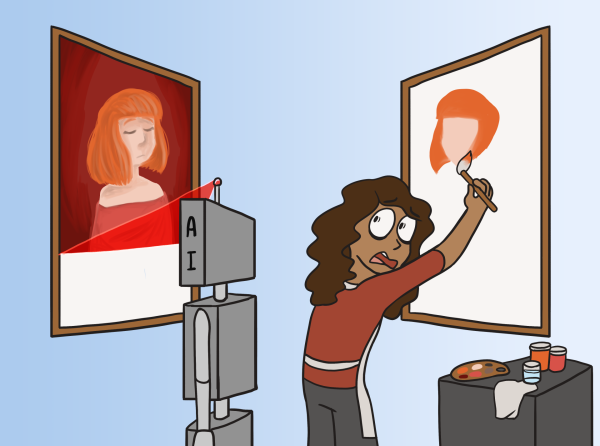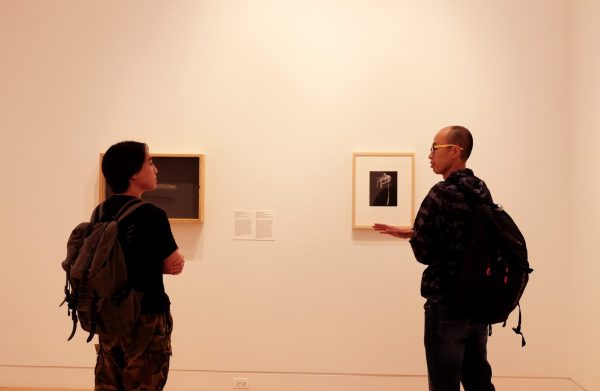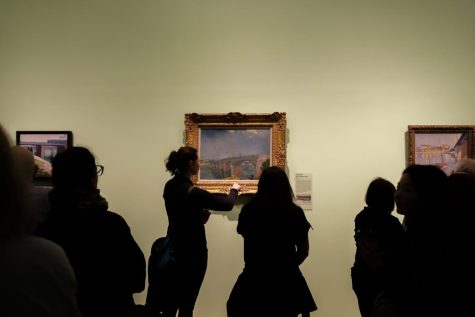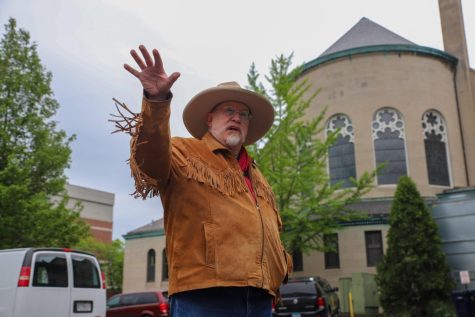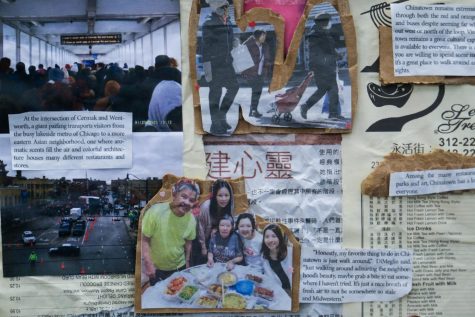Identity and hip-hop
Queerness, Blackness and Hip-Hop: A Dialogue
Packed into a room on the third floor of the library, people gathered to discuss hip-hop in a new way. A diverse group of people came prepared to discuss often overlooked facets of the music industry. Settled in with snacks and beverages, people from all backgrounds were ready to begin.
DePaul’s Center for Black Diaspora held an event on Wednesday, Jan. 24 that delved into the complexities and nuances between the hip-hop industry and queerness. Led by a panel of experts, the discussion covered topics of hyper-masculinity, the stereotypes imposed upon gay artists, the intricacies of being labeled a gay icon and ethical consumption.
Dr. Jalylah Burrell served as one of the experts on the panel. She is currently the Ida B. Wells-Barnett Postdoctoral Fellow at DePaul, in addition to her lecturing previously at Yale University, where she earned her Ph.D. in American Studies and African American Studies. Throughout the discussion, Burrell brought her expertise to the topic of queerness in hip-hop and brought some clarification to a complex subject.
“One goal (of this event) was to combat the silence with respect to queerness, blackness and hip-hop culture,” Burrell said. “Another goal was to hold space for members of the DePaul community to share their insights on the subject.”
In addition to Burrell, Michael Riley, the LGBTQA Resource Center Coordinator in the University’s new Office of Multicultural Student Success, served on the panel and helped to facilitate a conversation about an industry that often ignores marginalized communities.
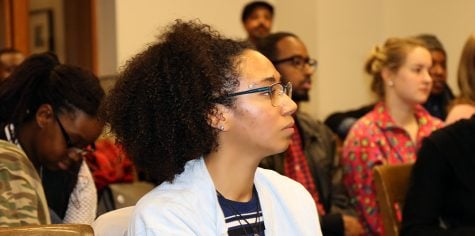
The intertwining of hyper-masculinity and elements such as fashion, lyrics and representation within hip-hop music were highlighted when discussion switched to hip-hop trio Migos. The group’s attire has gained attention for often containing floral patterns. In the grand scheme, it was acknowledged that hip-hop is inclusive of some things and highly exclusive of others, and exactly what those things are is ever changing.
The discourse was open and free to the public and was the first installment of the Center’s Winter 2018 documentary series.
The event opened with the showing of a short documentary focused on well-known queer artist, Cakes Da Killa. It served as the jumping-off point of an in-depth and critical conversation about queer representation within hip-hop.
Often, queer men are expected to act a certain way to reaffirm common stereotypes. A lot of the time, that manifests itself in men having to act sassy or fierce. The documentary explained that black queer men are pressured to always be performing, for no other reason than to meet societal expectations.
The audience was a mix of students and members of the public, all with diverse ages and backgrounds. The discourse at the event was engaging due to the many different people who were represented.
Some of the more lingering questions that were posed and pondered were those revolving around ethical consumption practices and the practicality thereof. If an artist openly speaks against your beliefs, how much responsibility do you have to stop supporting them? Can you separate the art from the artist? Should you? All of these were propositions without clear cut answers, therefore requiring extended discussion and debate.
“As a writer and scholar, I have long been invested in telling richly complex histories. As a professor, I work to equip students to do the same. Discussions like this remind us all of our blind spots and the necessity of addressing them to not only best understand history but also refine the analytical skills we use in our respective professions,” Burrell said.
The topics discussed also served as a look at a micro example of larger issues and themes that are playing out in our society on a grand scale. What started off with a focus on hip-hop quickly became a much broader discussion about society, the expectations of celebrities and queerness in America today.
“(Discourses like these) can assist in expanding the community’s understanding of hip-hop culture. The interrelated African diasporic arts forms innovated by Bronx youth in the 70s are rich, complex and evolving,” Burrell said. “Moreover, those art forms have transformed popular culture. Refining our understanding of them allows for a refining of our understanding of popular culture.”


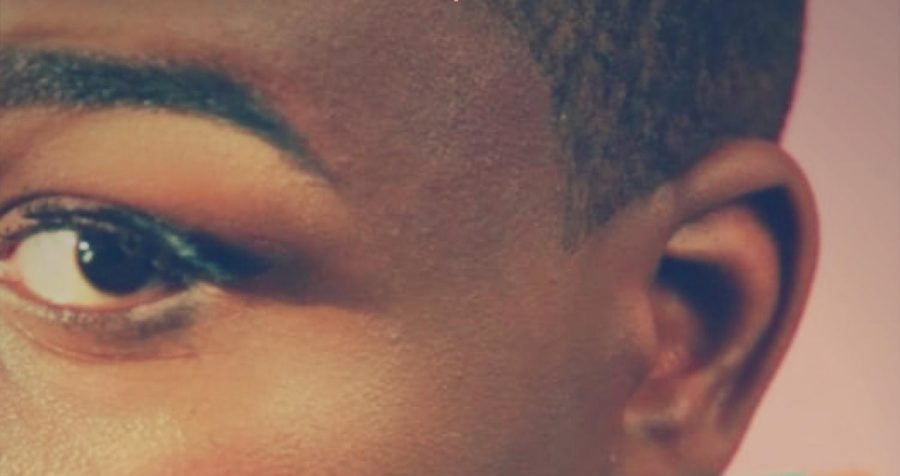

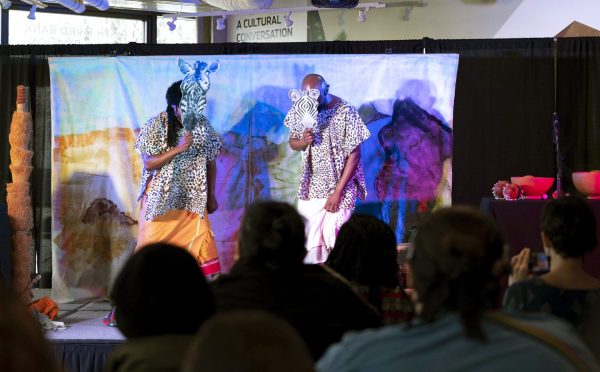
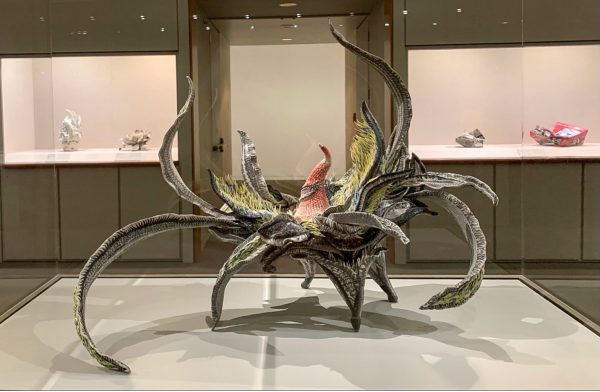
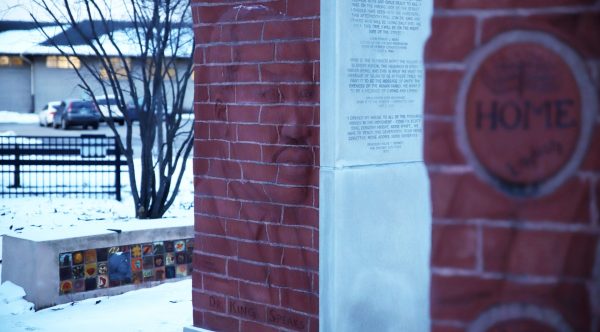

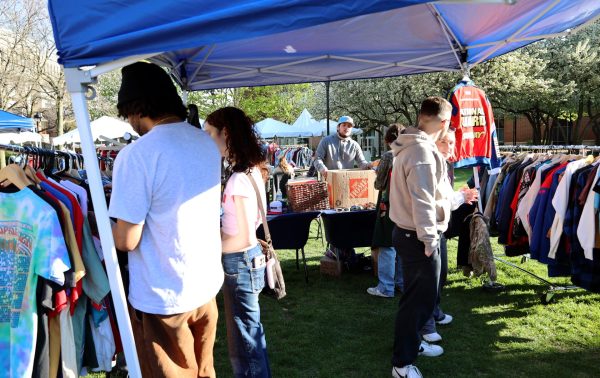
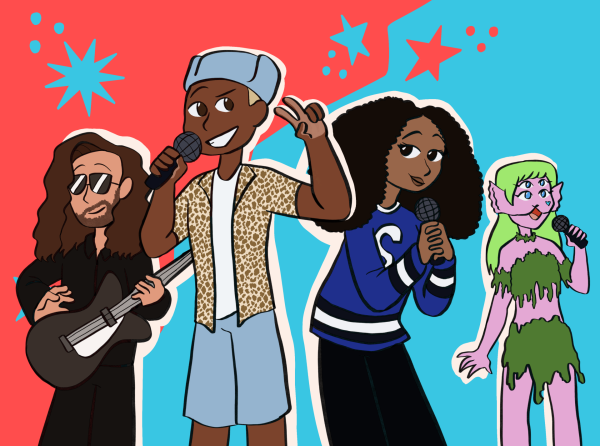
![DePaul sophomore Greta Atilano helps a young Pretty Cool Ice Cream customer pick out an ice cream flavor on Friday, April 19, 2024. Its the perfect job for a college student,” Atilano said. “I started working here my freshman year. I always try to work for small businesses [and] putting back into the community. Of course, interacting with kids is a lot of fun too.](https://depauliaonline.com/wp-content/uploads/2024/04/ONLINE_1-IceCream-600x400.jpg)
